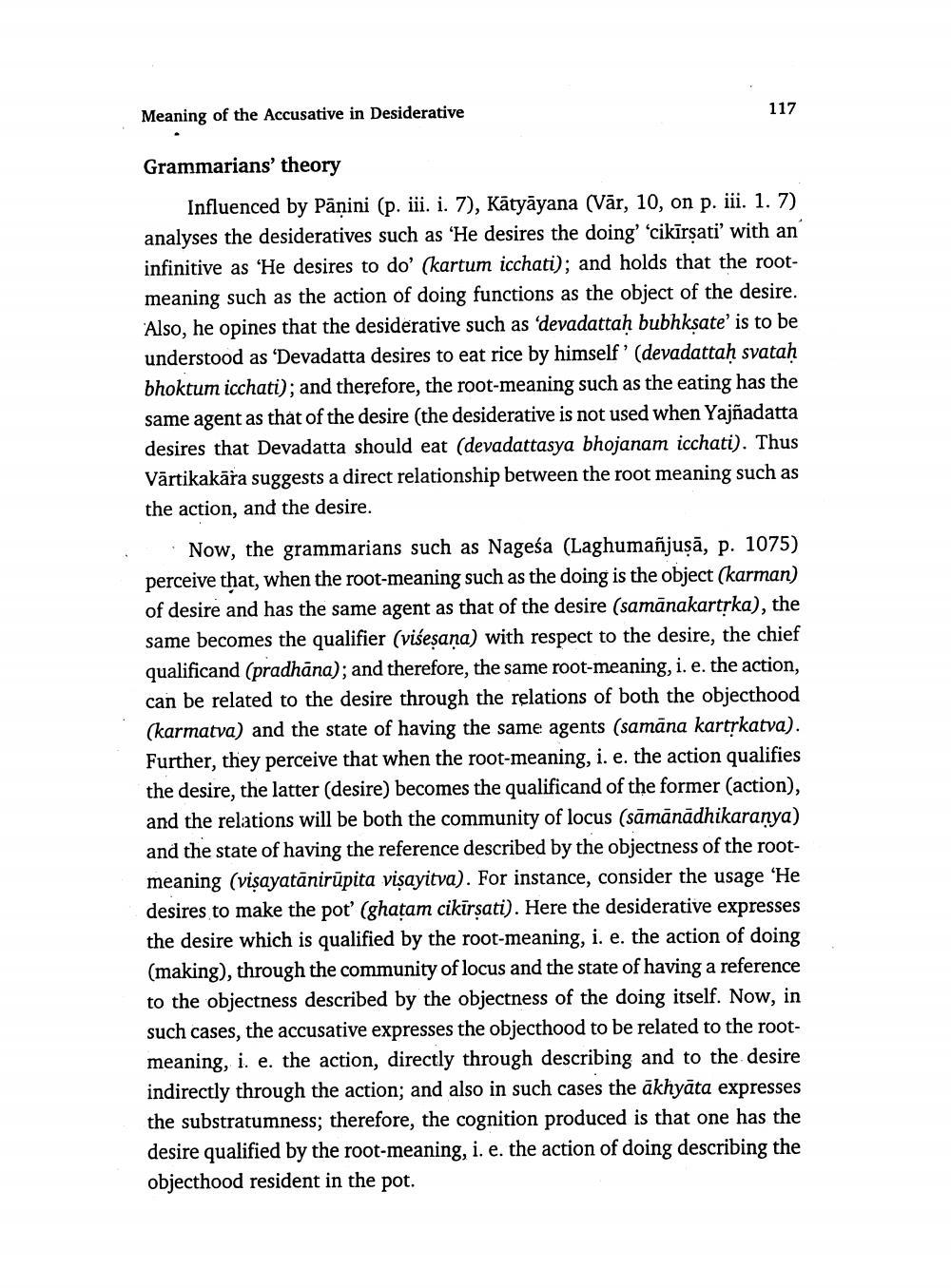________________
Meaning of the Accusative in Desiderative
117
Grammarians' theory
Influenced by Panini (p. iii. i. 7), Kātyāyana (Vār, 10, on p. iii. 1. 7) analyses the desideratives such as 'He desires the doing' cikīrsati' with an infinitive as 'He desires to do' (kartum icchati); and holds that the rootmeaning such as the action of doing functions as the object of the desire. Also, he opines that the desiderative such as 'devadattaḥ bubhksate' is to be understood as 'Devadatta desires to eat rice by himself '(devadattah svatah bhoktum icchati); and therefore, the root-meaning such as the eating has the same agent as that of the desire (the desiderative is not used when Yajñadatta desires that Devadatta should eat (devadattasya bhojanam icchati). Thus Vārtikakāra suggests a direct relationship between the root meaning such as
the action, and the desire. . Now, the grammarians such as Nageśa (Laghumañjușā, p. 1075)
perceive that, when the root-meaning such as the doing is the object (karman) of desire and has the same agent as that of the desire (samanakartrka), the same becomes the qualifier (visesana) with respect to the desire, the chief qualificand (pradhana); and therefore, the same root-meaning, i. e. the action, can be related to the desire through the relations of both the objecthood (karmatva) and the state of having the same agents (samāna kartykatva). Further, they perceive that when the root-meaning, i. e. the action qualifies the desire, the latter (desire) becomes the qualificand of the former (action), and the relations will be both the community of locus (sāmānādhikaranya) and the state of having the reference described by the objectness of the rootmeaning (visayatānirūpita visayitva). For instance, consider the usage 'He desires to make the pot' (ghatam cikīrsati). Here the desiderative expresses the desire which is qualified by the root-meaning, i. e. the action of doing (making), through the community of locus and the state of having a reference to the objectness described by the objectness of the doing itself. Now, in such cases, the accusative expresses the objecthood to be related to the rootmeaning, i. e. the action, directly through describing and to the desire indirectly through the action; and also in such cases the ākhyāta expresses the substratumness; therefore, the cognition produced is that one has the desire qualified by the root-meaning, i. e. the action of doing describing the objecthood resident in the pot.




